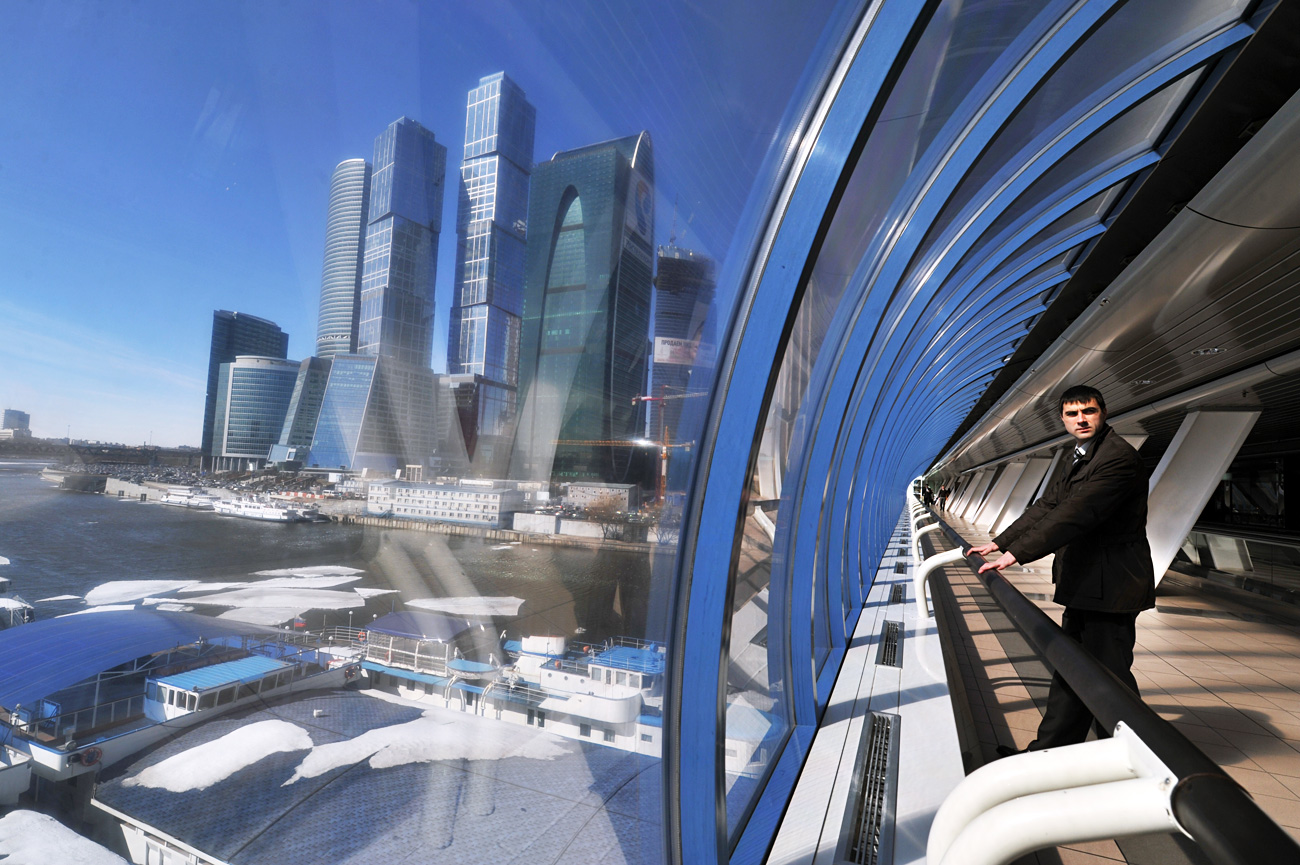
The ranking takes into account the full spectrum of financial stability indicators from economic growth to inflation to tax collection. Photo: The Moscow International Business Center (MIBC) "Moskva-City".
Artem Zhitenev/RIA NovostiRussia has come in second in the rating of the most stable emerging economies released by Bank of America Merrill Lynch in mid-December 2016.
In the ranking of top emerging markets, Russia has overtaken China and India and is second only to South Korea, Bloomberg reports.
The ranking takes into account the full spectrum of financial stability indicators from economic growth to inflation to tax collection, etc. According to the bank, Russia is showing weak economic growth but boasts some of the world’s most stable fiscal and leverage indicators.
“China remains in the top five on GDP growth but has lost ground in terms of private and public debt indicators, the current account and reserve adequacy,” said Bank of America strategist David Hauner.
According to Bank of America, Russia is making a comeback in the ranking after the country’s economy took a blow from falling oil prices in 2014.
China, having dropped to third place, is followed in the ranking by India, Indonesia, Poland, Mexico, Brazil, Turkey, and South Africa. Bank of America pointed out that South Africa retained its place at the bottom of the list because of “stagflation, twin deficits and high debt across sectors.”
According to data released by the Russian Ministry of Industry and Trade, overall industrial production in the country may end the year on a symbolic positive. Furthermore, industrial production in January-October 2016 grew by 0.3 percent compared with the same period last year. According to official forecasts, industrial growth in Russia will rise from 0.4 percent in 2016 to 1.1 percent in 2017, 1.7 percent in 2018, and 2.1 percent in 2019.
“Judging by polls among corporate managers, business activity in the Russian industry in November turned out to be the highest for the last five years,” said Sergei Tsukhlo, head of the business surveys department at the Gaidar Institute for Economic Policy.
Analysts point out that Russia’s advance from 51st to 40th place in the World Bank’s Doing Business ranking in late 2016 testifies to an improvement in the country’s business climate.
“This is quite a significant event both for Russian business and for the economy as a whole. The ranking is higher than that of the other BRICS partners, although it is very far from the leaders,” said Timur Nigmatullin, a financial analyst with the Moscow-based group of investment companies Finam.
Nigmatullin pointed out that in terms of reforms, Russia has made it to the top five countries, which has had an effect on its ranking.
Russia’s strengths continue to be in the following categories: getting electricity, registering property and enforcing contracts. In turn, a higher ranking may have a positive impact on capital investment, making up for the dip caused by political tensions with the West, added Nigmatullin.
The Russian authorities are making a lot of effort to improve the country’s standing in the Doing Business rating, said Sergei Khestanov, a macroeconomics adviser to the managing director of the Moscow brokerage firm Otkrytie Broker. According to him, certain progress has been made in reducing red tape when starting a business.
“Consistent progress in this area, with time, will take Russia into the leading positions, but to achieve that a lot still needs to be done,” he added. Having said that, he continued, there is a considerable element of conditionality in any rating since rankings very much depend on methodology and other parameters. Furthermore, even a slight change in methodology can have a serious impact on an investment ranking.
All rights reserved by Rossiyskaya Gazeta.
Subscribe
to our newsletter!
Get the week's best stories straight to your inbox